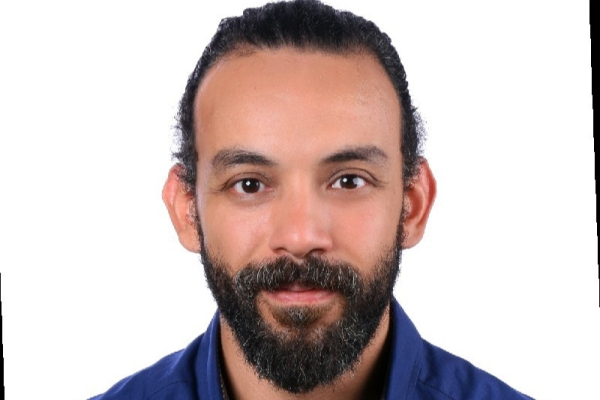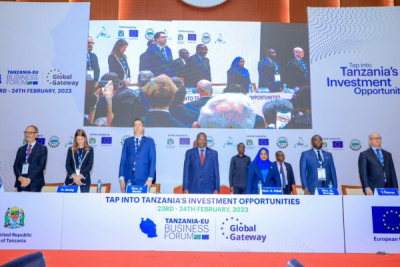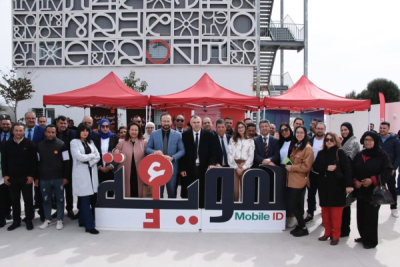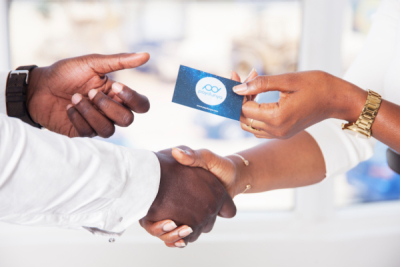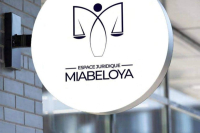The fund aims to support women in their bid to advance tech innovation in Africa where they still face significant access to finance challenges.
Last Monday, the Women in Innovation Fund (WiNFUND), a nonprofit accelerator supporting women-led and women-focused businesses, announced the public launch of the WiNFUND NFT Africa Collection, a collection of unique digital artworks designed by Rwandan artist Christella Bijou.
The fund, launched in 2022, also disclosed its aims. “WiNFUND is an innovative model that will help entrepreneurs grow by building an engaged, global community that will provide business support and financing through the sale of unique NFTs,” said Patricia O'Hayer, co-founder of WiNFUND.
Co-founded by consumer goods company Reckitt, the Health Innovation and Investment Exchange (HIEx), Kofi Annan Foundation, and the Ecobank Foundation, it aims to address two major inequalities, namely women’s uneven access to essential health care and finance.
It will be partly financed by the sale of WiNFUND NFT while WiNFUND NFT holders will have access to invitation-only events on the Sustainable Development Goals and will be invited to join a mentoring program to directly support successful women entrepreneurs.
In the second half of 2022, it opened applications for women entrepreneurs seeking its support. Up to now, it has received 300 applications from seven African countries. The applicants shortlisted will receive business support to help them grow, while the best will receive direct funding from WiNFUND.
Samira Njoya
He is an experienced engineer in the energy industry and a fintech entrepreneur. He is also the founder of Copal, a fintech startup that allows families to track and manage their expenses.
Ahmed Refaat (photo) is an Egyptian entrepreneur who graduated from Cairo University with a Bachelor's degree in Mechanical Engineering and from Said Business School at Oxford University with a Master's degree in Business Administration. He is also the CEO and a co-founder of fintech startup Copal.
The startup, founded in 2021, develops solutions to improve expense management. Using its eponymous AI-based app and personalized prepaid cards, its users can buy, pay, transfer, withdraw and save money with just one click. On February 15, the startup, which recently graduated from the Flat6Labs accelerator program in Cairo, entered into a strategic partnership with Mastercard to launch Egypt's first family payment and expense management app.
The new solution allows parents and guardians to track and manage their young dependents’ finances. It comes with simplified financial education tools that promote youth inclusion in the digitized payment ecosystem and help them become financially savvy.
“Copal’s vision is to fill the gap for the un- and under-banked through introducing a product that is tailored specifically for their every need. […]We are proud to partner with Mastercard, and we are confident that, with their leadership and support, Copal will grow and expand as fast as we ambitiously planned,” said Ahmed Refaat.
Before Copal, in 2016, the CEO had co-founded Odqa Renewable Energy Technologies, an “engineering spin-out from Oxford Thermofluids Institute.” He served as the company's chief technical officer until 2021 and as chief operating officer between 2020 and 2021.
His professional career began in 2007 with Schlumberger, a technology company unlocking energy access for the benefit of all. He joined the company as a field engineer before being promoted to general field engineer in 2013. In 2014 he was named technical and sales support engineer and in 2015, he became the company's wireline account manager.
Melchior Koba
In Tanzania, the ICT sector is growing rapidly. But, to quicken the pace of growth, authorities want to attract foreign entrepreneurs.
Tanzanian Vice President Philip Mpango recently invited investors from around the world to explore and invest in Tanzania's ICT and digital transformation sector.
On Thursday, February 23, while opening the first Tanzania-European Union (EU) Business Forum in Dar es Salaam, he praised his country’s digital sector while reminding investors that the country's national ICT policy supports investments in digital infrastructure such as data centers and digital technology institutes.
"ICT and digital transformation are among the key drivers of rapid development...This is aimed at improving skills and leveraging cutting-edge digital innovations such as robotic engineering and artificial intelligence," he said before adding that the Tanzanian government was focused on building a dynamic economy based on four pillars, namely reform, reconciliation, resilience, and reconstruction.
To pave the way for domestic and international investors, the government has taken steps to strengthen and modernize the sector, including the establishment of the Tanzania Investment Centre and the Zanzibar Investment Promotion Authority. The centers are intended as one-stop shops for investment promotion and facilitation.
Attracting investments is just one of the actions being implemented by the Tanzanian government to develop the ICT sector. In October, the government inaugurated a $3.4 million infrastructure package. The infrastructures covered include 11 ICT centers in the 11 districts of Unguja and Pemba, the two main islands forming the Zanzibar archipelago, as well as 42 communication towers across the archipelago.
Samira Njoya
A few months ago, Tunisia kicked off the digitalization of its public services. The aims were, among others, to end unnecessary bureaucracy and guarantee the quality and efficiency required for the services.
Tunisia’s mobile ID project will target over 100,000 citizens this year, ICT Minister Nizar Ben Néji indicated last Friday.
During a campaign aimed at raising awareness of the benefits of mobile ID, the official explained that his ministry was working to reach more than 100,000 Tunisians this year and increase the number to the thousands in the years to come.
"The Ministry is working with banks to introduce mobile IDs in the banking sector,” he said pointing at the upcoming introduction of electronic contracts in car sales and purchase procedures.
The country launched its Mobile ID service on August 3, 2022. The ID was introduced as a universal and unique authentication method to access some public services online. The aim is to gradually replace cumbersome administrative procedures with digitized, simple, and fairly secure procedures.
Earlier this year, the official website dedicated to digital identity in Tunisia announced that as of Monday, January 2, 2023, the number of applications for digital identity not activated had reached 86,000 while the number of digital identities activated was 36,474. For the Minister of ICT, this is a good start. However, the country wants to generalize the use of the mobile ID and introduce other online services, in cooperation with other ministries. Hence the awareness campaign.
Samira Njoya
The startup behind the solution was founded in Senegal in 2015. Since then, it has expanded its reach to six countries, providing more than 1,000 businesses with various tools to optimize their performance.
Paydunya is a fintech solution developed by a Senegalese startup. It allows individuals and businesses to easily and securely collect payments online from a variety of payment methods, including e-wallets and bank cards.
"Paydunya offers businesses and financial institutions a suite of multi-channel digital solutions that facilitate the issuance and receipt of payments on websites or mobile applications, as well as the collection and disbursement of bulk payments," according to its website.
Once users register through its website or mobile app - available for Android and iOS devices - they can access the financial services it offers. For example, they can send and receive funds via mobile money or bank cards such as Visa and MasterCard.
Depending on the country, it charges between 1.5% and 2.5% commission for monthly flows below CFAF 10 million and between 1.4% and 2.4% for monthly flows above CFAF 10 million.
It currently claims more than 50,000 transactions processed daily, over 1,000 corporate clients, and a presence in six countries. According to PlayStore data, the Android version of its mobile application has been downloaded over 100,000 times.
Adoni Conrad Quenum
In sub-Saharan Africa, the chronic absence of civil servants tends to undermine many institutions. To address this growing phenomenon, governments are turning to digital technologies to provide adequate solutions.
The Gambia recently called on ministries, departments, and agencies to install biometric tallying systems to confirm the presence of civil servants at work. According to a memo issued by The Gambia's Ministry of Public Service, Administrative Reforms, Policy Coordination, and Implementation, the call is merely a reiteration of an earlier memo issued by the Secretary-General and Head of the Public Service in February 2021.
The memo instructs the concerned institutions to acquire and install the biometric attendance system, per the specifications, by the end of February 2023.
Recently in Kenya, the Nairobi County government made a similar decision. It announced that it would introduce a digital employee registration system and biometric identity cards to identify "ghost" employees at the town hall.
Johnson Sakaja, the governor of Nairobi, said the county had budgeted Ksh10 million ($79,000) for the project, which will identify irregular workers among the approximately 13,000 civil servants working for the city council.
Meanwhile, in Gambia, the government plans to replace ID cards with an electronic biometric tallying system, with data to be printed weekly and transmitted monthly to the secretary general and head of the civil service.
The new reforms aim to combat the ills that plague the sector (including absenteeism), modernize the administration, and reduce the huge wage bill that ghost workers impose on the government.
Samira Njoya
The Egyptian government has made citizen-centric digital transformation a key factor in its development. To achieve its goals, it has increased investment in the ICT sector.
Egyptian President Abdel Fattah al-Sissi (photo, center) recently called on his government to provide all necessary support to build and develop the skills of Egypt's youth, support start-ups and encourage their expansion in the ICT sector.
Last Saturday, during his meeting with Prime Minister Mostafa Madbouli and Minister of Communications and Information Technology Amr Talaat, the Egyptian president issued "directives to continue the state's efforts in digital transformation and the automation of administrative and governmental procedures." According to the presidency, the directives aim to "assist citizens and reduce time, effort and costs [...] while keeping up with the state-of-the-art technological applications in the field of artificial intelligence, whose importance and added value steadily increase globally."
In recent years, thanks to its digital strategy "Digital Egypt", the country has made significant progress in the digital sector. It has implemented several initiatives and projects, including "Egypt Digital Cubs", and digital innovation centers, as well as the development of Egyptian post offices, real estate registration offices, technology parks, and applied technology schools.
In July 2022, the government announced the allocation of a budget of EGP 6.025 trillion ($319.1 million) for digital and cybersecurity projects in the fiscal year 2022-2023. Specifically, EGP 5.4 trillion will be allocated to digital transformation projects and the development of digital skills.
The initiatives and efforts directed by the President of the Republic are in line with Vision 2030, the country's development strategy, which aims to strengthen economic and social development in all sectors and make the country a digital pole of excellence in Africa.
Samira Njoya
Most people unknowingly believe that only wealthy individuals and large corporations have access to legal counsel. To change this perception and help as many people as possible, tech entrepreneurs decided to launch a digital solution.
Miabéloya is a digital solution developed by a Togolese start-up. It facilitates access to legal services and professionals for individuals and businesses.
On its web platform, users can submit their cases to legal professionals. They can either fill out an online form detailing the case, or they can choose to have an instant discussion with the professionals on Whatsapp.
The startup supports businesses in their fight to protect their rights. It also assists in the development of real estate acquisition strategies. In short, it specializes in commercial law, corporate law, real estate law, labor law, and tax law. For legal situations in these sectors, it can be a strong ally in finding viable solutions.
At Miabéloya, the first consultation is always free of charge and the lawyers act quickly to resolve the cases as soon as possible. After the first free consultation, users can choose from several packages, including a basic package that costs CFAF10,000 (about $16) and a premium package that costs CFAF50,000. To set up a business, the legaltech charges CFAF 80,000 for a limited liability company and CFAF 200,000 for a simplified joint stock company or a limited liability company.
Adoni Conrad Quenum
After five years managing projects for telecom operator MTN, he teamed up with another entrepreneur to launch Djamo, which aims to fill the gaps left by traditional financial institutions.
Régis Bamba (photo) is an Ivorian computer scientist and tech entrepreneur. A graduate of Towson University (USA), where he earned a bachelor's degree in computer science in 2011, he is the chief product officer and one of the co-founders of fintech startup Djamo.
Founded in 2021, Djamo helps people improve their money management. Through its eponymous app, it enables underbanked individuals to manage their daily expenses and plan for their future with savings and investment plans. In short, it helps them regain control of their finances.
The startup also issues VISA cards to its users and does not charge any fees or commissions. It is the first Ivorian startup to join the prestigious US incubator Y Combinator.
Explaining the startup's no-fee, no-commission policy, Régis Bamba states, "In our region, users pay amongst the highest fees in the world but do not always receive adequate service in return and that can be extremely frustrating. The one thing that we want to achieve is to offer a product where customers get real value for their money."
In November 2022, the startup announced that it had raised $14 million from Y Combinator and three other lead investors (Enza Capital, Oikocredit, and Partech Africa), with Janngo Capital, P1 Ventures, Axian, and Launch Africa as participating investors.
Before launching the startup, Régis Bamba worked for the telecom operator MTN as a mobile money project manager (2014-2016) and product manager (2016-2020). In 2014, he founded Code.ci, a network of developers who pool their expertise to address socio-economic challenges in Côte d'Ivoire. This network, together with the government, is the originator of the first open data platform in Côte d'Ivoire.
Melchior Koba
Thanks to the assistance, Kenya expects to complete its ongoing digital projects within ten years.
Last Thursday, the Kenyan Minister of Digital Economy Eliud Owalo (photo) indicated the country requested the World Bank's financial assistance for the partial implementation of its 100,000-km fiber deployment project.
“With Cabinet approval already in place, we are now set to roll out an initial 5,000 kilometers by June 2023. We are also in talks with the World Bank, through the National Treasury, to secure part of the funding for the digital superhighway, through the Kenya Digital Economy Acceleration Project (KDEAP),” the government official said speaking at the third edition of the digital summit organized by the Nation Media Group in Mombasa. The fiber optic project is part of the 2022-2023 National Digital Master Plan launched in April 2022.
During the digital summit, Eliud Owalo also announced other equally important digital projects, including the implementation of a national identity system by June, the integration of 5,000 government services on the e-citizen portal, and the digitization of the land registry which could potentially unlock 100 million shillings in revenue (about $790,000) from the land sector.
Samira Njoya
More...
Several African countries have adopted biometric identification in strategic sectors like public administration, security, transport, and finance. This much-appreciated development stems from their will to improve efficiency but, this adoption raises concerns, about various cases of abuse, it could facilitate.
Over the past decade, biometric adoption was accelerated in Africa with governments instituting fingerprint, facial, and iris recognition as the authentication norms in the issuance of various identity documents. and national identity cards. In its 2020-2030 Digital Transformation Strategy for Africa, the African Union even emphasized the use of such biometric identification technologies.
The Pan-African Development Institution believes that digital identity is essential for the digital economy because it promotes trust in all interactions, both online and offline.
However, this growing adoption of biometric technologies raises concerns given the legal weaknesses in African countries' data protection laws. In its report "State of play on Internet freedom in Africa 2022: the rise of biometric surveillance", the Collaboration on International ICT Policy for East and Southern Africa (CIPESA) fears abuses such as profiling or targeting, that are dangerous for individual freedoms.
"The use of CCTV with embedded facial recognition technologies is increasingly becoming more accessible and prevalent on the continent, yet these systems tend to be intrusive. These systems can track the movement of people, recognize motor-vehicle number plates, and match live footage of people in the public with images of those on a ‘watch list’ based on their ability to recognize specific and unique facial features, akin to fingerprinting," the research center explains.
According to Africa Data Protection, by January 2023, only 35 out of 54 African countries had a data protection law while only 22 countries had a data protection authority.
At a time when many African countries are still among the "unfree" states (in the Global Freedom Score 2022), CIPESA stresses that "the right to privacy is essential in a democratic society as it plays a critical role in the realization and enjoyment of the rights to freedom of expression, association, assembly and access to information." The center believes that there should be strict oversight on the use of biometric data.
Muriel Edjo
The solution was initially active in the ride-sharing sector but, in March 2020, it shifted to the logistics sector. Despite the demise of its founder months later, it is faring well in the newly chosen activity.
Gokada is a digital solution developed by a Nigerian eponymous startup. It allows access to food and parcel delivery services. The startup behind the app was founded, in 2017, as a ride-sharing service. Since its launch, it has raised about $12.4 million to support its growth and, in March 2020, it fully shifted to the logistics sector.
The digital solution it launched then is accessible through a mobile app (available for Android and iOS devices). Using that app, users can create Gokada accounts to access various services. It is a handy solution for both individuals and businesses.
With its real-time tracking feature, it allows users to track the delivery status and position at any time. It also allows users to schedule pick-up services as timely as possible. Its delivery fares are also cheap, with fares being calculated based on the distance and time spent, not on the size or weight of the packages.
The startup claims more than 1,200 delivery drivers and over 1 million deliveries in less than a year. On Playstore, its Android app has been downloaded more than 100,000 times. So, it is a popular solution in Nigeria, although it is currently active in just some selected states. In September 2021, it entered Oyo State (Ibadan) but, in the coming months, it plans to launch in more states.
Adoni Conrad Quenum
Fidèle Nsadi (photo) is a Congolese computer scientist and technology entrepreneur who graduated from the University of Kinshasa in 2022. He is the co-founder and CEO of tech company Faithful LLC.
Through Faithful LLC, he launched a fintech solution that works without an internet connection. The solution, called Express App, offers quick and easy access to financial services, including mobile money, mobile banking, and plan activation services, among others. Thanks to its USSD-based technology, the app makes life easy for its users and provides a very intuitive user experience.
"Express App is a mobile fintech solution that aims to accelerate financial inclusion by offering several financial services in the DRC and the rest of Africa in a simple and fast way. The peculiarity of Express App is that it works without an Internet connection, to allow a large number of people to access financial services such as mobile money, mobile banking, and the purchase of credit via a mobile application, even if they do not have access to the Internet, the penetration rate of which is still very low in the DRC and in many other African countries," Fidèle said in an interview published by TechCabal in February 2023.
Express App is not the only product launched by Faithful LLC. The startup, which was incubated by DR Congo incubator Ingenious City (October 2020-March 2021), also launched an instant messaging platform called Masolo.
For this messaging platform, Fidele Nsadi was the front-end developer. His entry into the professional world happened in 2018 when he worked as an IT manager for Convipat, an association that promotes agriculture and the consumption of healthy local products.
In 2019, at the university in Kinshasa, he was chosen as an assistant project manager for a project aimed at building a water supply system for residents in Dwale in the Bateke plateaus. In 2020, the fish production center RATALBI Pisciculture hired him as an IT consultant.
Melchior Koba
He is an experienced software engineer and an important player in Gabon's digital ecosystem. He is appointed director general of the National Agency of Digital Infrastructures and Frequencies (ANINF) after more than 27 years of working in various public institutions in the country.
Aimé-Martial Massamba (photo) is a Gabonese computer engineer who graduated from the Casablanca Higher Institute of Applied Engineering. He also holds a Master's in multimedia communication and information technology from the University of Picardie Jules Verne (UPJV).
On Monday, February 20, 2023, he was appointed Director General of Gabon's National Agency for Digital Infrastructure and Frequencies (ANINF) during the ministerial council held that day. As the new director general, he will lead the activities of the agency, whose mission is to develop digital infrastructure in Gabon and to develop effective e-Government applications.
His appointment is the result of all of his achievements within the ANINF, which he joined as a project manager in 2011. As the project manager, he oversaw the implementation of several major state projects including the national geomatic plan and the registers of natural and legal persons. In 2014, he was promoted to head the key infrastructure management department within the ANINF.
His professional career started in 1995 at the Directorate General of Taxation, where he was the deputy project manager. In 1999, he was appointed deputy project manager in charge of the development of the front office applications used by the national identity card establishment center.
In 2001, he was appointed as a research officer at the DGBS, the agency in charge of the management of academic scholarships. He notably designed and developed the client-server graphical application used to manage government scholarships, dematerialized the scholarship application process, and developed a website where various commissions post application results.
Melchior Koba



